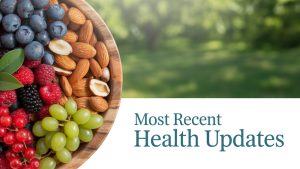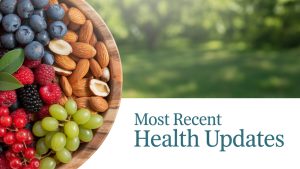
“Is Big Pharma Silencing Nature to Profit from Our Health?”
natural health solutions, pharmaceutical industry influence, regulation of dietary supplements
Understanding the Relationship Between Big Pharma and Big Government
In recent discussions, whistleblower Matthew Pauly raises critical questions about the intertwined relationship between Big Pharma and Big Government. His thought-provoking tweet highlights how these powerful entities have influenced regulatory policies that ban natural foods and impose restrictions on dietary supplements, making them increasingly expensive. This summary aims to dissect these claims, explore their implications on public health, and delve into the broader context of the pharmaceutical and media industries.
The Role of Big Pharma in Health Regulation
Big Pharma, a term commonly used to describe large pharmaceutical companies, plays a significant role in shaping health policies. These corporations invest heavily in research, development, and marketing of medications, often leading to substantial profits. However, this profit-driven model raises ethical questions about whether the primary focus is on public health or financial gain.
Pauly’s assertion that Big Pharma has convinced governments to ban natural foods and regulate supplements suggests a strategy to preserve market dominance. Natural foods and dietary supplements have been shown to support health and prevent illness, posing a potential threat to pharmaceutical sales. The regulatory framework established by governments often reflects the interests of these corporations, leading to conflicts of interest where public health can be compromised for profit.
The Impact of Regulation on Natural Foods and Supplements
The regulation of natural foods and dietary supplements has significant implications for consumer health. Many natural foods are rich in nutrients and essential for maintaining overall well-being. However, when these foods are banned or heavily regulated, consumers lose access to healthier options. Furthermore, the high costs associated with compliant supplements can deter individuals from pursuing healthier lifestyles.
This regulatory environment raises questions about why certain natural products are deemed unsafe while synthetic medications are often marketed without the same level of scrutiny. The complexity of the regulatory landscape can create confusion among consumers who may not fully understand the benefits of natural alternatives versus pharmaceutical solutions.
Questions of Ownership: Big Pharma and Big Media
In his tweet, Pauly also alludes to the ownership of Big Pharma and Big Media. The relationship between these two industries can significantly influence public perception and consumer behavior. Big Media often plays a crucial role in shaping narratives about health, medicine, and wellness.
When pharmaceutical companies engage in advertising through media channels, they can control the information that reaches the public. This can lead to a situation where the benefits of natural foods and supplements are overshadowed by the promotion of pharmaceutical products. The intertwining interests of Big Pharma and Big Media raise important questions about transparency and the integrity of health information available to consumers.
Public Health and Consumer Responsibility
As consumers, it is essential to critically evaluate the information presented by both the pharmaceutical industry and media outlets. Understanding the dynamics at play can empower individuals to make informed choices about their health and wellness. The increasing popularity of natural foods and supplements signals a growing awareness among consumers about the benefits of holistic health approaches.
Moreover, the dialogue surrounding the regulation of natural foods and supplements highlights the importance of advocating for policy changes that prioritize public health over corporate interests. By demanding transparency and accountability from both Big Pharma and Big Government, consumers can play a pivotal role in reshaping the health landscape.
Why Do We Accept This Status Quo?
Pauly’s tweet concludes with a rhetorical question: “Why do we put up with this?” This question resonates with many who feel frustrated by the current state of health regulation. The acceptance of these practices may stem from a combination of factors, including a lack of awareness, reliance on established systems, and a belief in the safety and efficacy of pharmaceutical products.
However, the growing movement towards natural health solutions suggests a shift in consumer attitudes. More individuals are seeking alternatives to conventional medicine, emphasizing the need for greater access to natural foods and supplements. This shift indicates a potential challenge to the status quo and an opportunity for change.
The Future of Health Regulation
As discussions around health regulation continue to evolve, it is crucial to remain vigilant and informed. The future of health policies will likely depend on consumer advocacy, scientific research, and the willingness of society to question existing frameworks. By promoting a balanced approach to health that includes both natural and pharmaceutical solutions, we can work towards a system that prioritizes well-being over profit.
In conclusion, Matthew Pauly’s insights into the relationship between Big Pharma, Big Government, and public health raise essential questions about our health choices and the regulations that govern them. By fostering open conversations and encouraging informed consumer decisions, we can challenge the existing paradigms and pave the way for a healthier future.
By seeking transparency, supporting natural health solutions, and advocating for fair regulatory practices, individuals can reclaim their health and well-being from the influences of powerful industries. The pursuit of a healthier society requires collective action and a commitment to challenging the status quo in pursuit of better health for all.
Curious how Big Pharma convinced Big Government to ban the natural foods and even now is regulating supplements (making them too costly) and yet both of these make us very healthy and keep sickness away. Who own Big Pharma, Big Media? Why do we put up with this? https://t.co/yAlocKYdDt
— Matthew Pauly, Whistleblower. Pls press bell (@MatthewPauly13) June 7, 2025
Curious How Big Pharma Convinced Big Government to Ban Natural Foods?
Have you ever wondered why the natural foods that have nourished humanity for centuries are so often sidelined in favor of synthetic alternatives? It’s a question that many of us are asking, especially in light of the growing trend towards health and wellness. This inquiry often leads to another: just how did Big Pharma convince Big Government to regulate these natural foods? Let’s dive into this intricate web of influence and explore the implications for our health and well-being.
Understanding the Role of Big Pharma and Big Government
To grasp the relationship between Big Pharma and Big Government, we need to consider their respective roles. Big Pharma, the pharmaceutical industry, is driven by profit. They develop medications, often at a high cost, which are sold to consumers and prescribed by doctors. On the other hand, Big Government represents regulatory bodies that oversee public health and safety. Ideally, their goal should be to protect the public, but the reality can be more complicated.
The relationship between these two entities is often characterized by a revolving door of personnel and lobbying efforts that blur the lines between public policy and corporate interests. This leads us to the question: who actually benefits when natural foods and supplements are regulated?
Why Are Natural Foods Being Banned?
It might seem absurd at first glance—why would anyone want to ban foods that are inherently healthy? However, when you look closely, it becomes apparent that the answer often lies in profit margins. Natural foods are often cheaper and more accessible than patented pharmaceuticals. If consumers turn to these natural alternatives, it could potentially threaten the bottom lines of pharmaceutical companies.
One significant factor is the “safety” argument. Government regulations often cite safety concerns as a reason for banning or regulating natural foods and supplements. While some regulation is necessary to ensure consumer safety, the extent of such regulations can sometimes seem excessive. This is especially true when you consider that many natural foods have been consumed for generations without any adverse effects.
The Regulation of Supplements and Its Impact on Health
The regulation of dietary supplements is another contentious area. Many supplements have proven benefits, helping to ward off diseases and support overall health. However, the cost of complying with regulations can make these supplements prohibitively expensive for consumers, effectively limiting access to those who can afford them.
This leads to a crucial question: how many people are actually aware of the health benefits that these natural supplements provide? The answer is disheartening. Many consumers trust healthcare professionals who often receive funding from pharmaceutical companies, leaving them less informed about the alternatives available in natural foods and supplements.
Who Owns Big Pharma and Big Media?
To further complicate matters, we need to ask who owns Big Pharma and Big Media. It’s no secret that there’s a significant overlap between the two. Media companies often rely on pharmaceutical advertising as a primary revenue source. This creates a situation where the information we receive about health and wellness is filtered through a lens of profit.
As consumers, we must question the narratives we are fed. Are we being presented with the most accurate information, or is there an agenda at play? This isn’t just about food; it’s about the entire healthcare system and how it operates.
Why Do We Put Up With This?
Despite the growing awareness of these issues, many of us continue to accept the status quo. But why? Part of the answer lies in the complexity of the healthcare system. It’s daunting to challenge a system that seems so entrenched and powerful. Additionally, many people feel overwhelmed by the sheer volume of information available, making it hard to discern fact from fiction.
Another factor is the fear of being labeled as a conspiracy theorist. Asking tough questions about the relationship between Big Pharma, Big Government, and Big Media can sometimes lead to social stigma. This can deter individuals from seeking the truth and advocating for change.
Empowering Yourself with Knowledge
Understanding the dynamics at play is crucial for making informed decisions about your health. By educating yourself about natural foods and supplements, you can take charge of your wellness journey.
For instance, consider exploring the benefits of whole foods, herbs, and vitamins that can enhance your well-being. Many resources are available online that provide evidence-based information about these alternatives. Websites like [Examine.com](https://examine.com) offer comprehensive analyses of supplements and their effects on health.
Conclusion: A Call to Action
In light of all this, it’s essential to stay informed and proactive about your health. The more we learn about the influences of Big Pharma and Big Government, the better equipped we are to make choices that align with our health goals.
Engaging in discussions about the regulation of natural foods and supplements can lead to change. Whether it’s advocating for clearer labeling, supporting local farmers, or simply sharing information with friends and family, every little bit helps.
As consumers, we have the power to push back against a system that often prioritizes profit over health. So, let’s get curious, stay informed, and make choices that benefit our health and well-being. Together, we can challenge the status quo and advocate for a healthier future.
References
For further reading on the impact of Big Pharma and Big Government on health choices, consider the following sources:
- The Role of Big Pharma in Public Health
- Understanding Dietary Supplements
- The Future of Dietary Supplements
“`
Feel free to adjust any section or add more references as needed!
Curious how Big Pharma convinced Big Government to ban the natural foods and even now is regulating supplements (making them too costly) and yet both of these make us very healthy and keep sickness away. Who own Big Pharma, Big Media? Why do we put up with this?